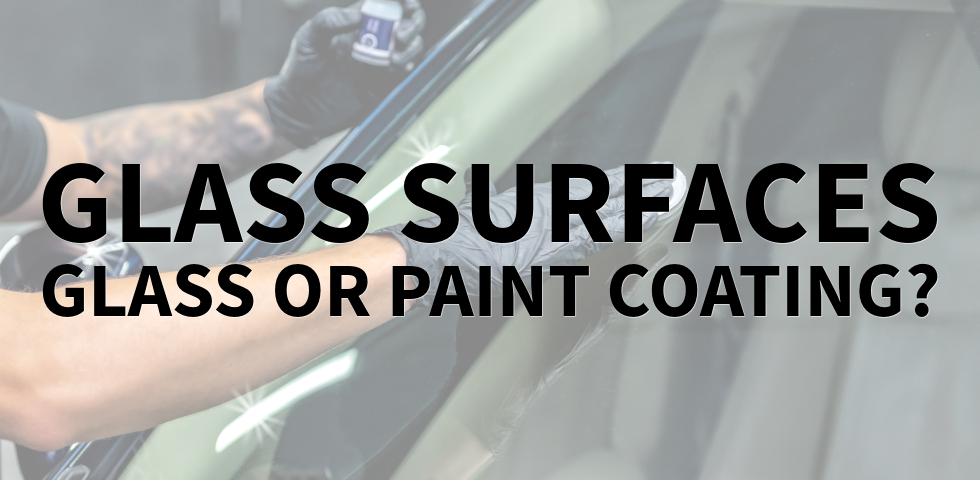
Simply put, applying a glass specific coating to a glass surface can elevate both protection and visual clarity to unprecedented levels. Here’s why:
- Optimal Clarity: Glass-specific coatings are formulated to enhance transparency, ensuring that your glass surfaces remain crystal clear. Unlike traditional paint coatings, these specialized formulations provide a pristine finish and greatly reduce streaking or even wiper chatter.
- Superior Protection: While paint coatings offer a basic level of protection against scratches, swirls, and UV damage, they may not be optimized for the unique properties of glass. Glass-specific coatings are designed to bond with the glass surfaces at a molecular level, forming a durable barrier that repels contaminants for a much longer period of time.
- Ease of Maintenance: By applying a glass-specific coating over a paint coating, you streamline your maintenance efforts significantly. These coatings exhibit excellent hydrophobic properties, repelling water, dirt, and grime with ease. As a result, routine cleaning becomes a breeze, requiring less effort and reducing the need for harsh cleaning agents that can potentially damage the underlying coating.
A Word from Gyeon:
Want to deep dive in the science of glass coatings specifically? Daniel from Gyeon shares more helpful information!
The main difference really does just come down to the difference in base materials (soft clearcoat vs hard glass) – thus requiring different bonding agents and formula ratios. The results we’re aiming to achieve with a dedicated glass coating are also different from that of a traditional paint coating. With glass, we want what is installed to be a thin enough layer so that it does not impair any visibility whatsoever. But with the layer being so thin, we also don’t want a sacrifice in durability – so it takes a lot of R&D to find the proper mixture/ratio for the coating. The main goal with glass coatings isn’t to boost gloss or enhance color, but rather to greatly enhance visibility in poor weather conditions, and help keep your glass clean. I like to refer to our glass coatings as more of a safety precaution than as an appearance enhancement. It’s also very important that our glass coatings carry a full alcohol tolerance, which is crucial since washer fluid is almost always alcohol-based.
Tl;DR is that the coating is not what you would typically find in a paint coating bottle, and this is to ensure that it can bond to the hard, but porous, surface of glass without negatively effecting visibility or impairing the functionality of vehicle glass. Coating glass adds hydrophobics to help keep the glass clean while driving, a protective barrier to help prevent ice buildup/adhesion, and of course make future cleanings much easier!
Paint coatings provide a basic level of protection for glass surfaces, but they fall short of maximizing clarity, overall durability, and ease of maintenance to these areas. Whether you’re looking to preserve new glass surfaces, reduce maintenance, or improve clarity during harsh driving conditions, investing in a glass-specific coating is a decision that pays dividends in the long run.